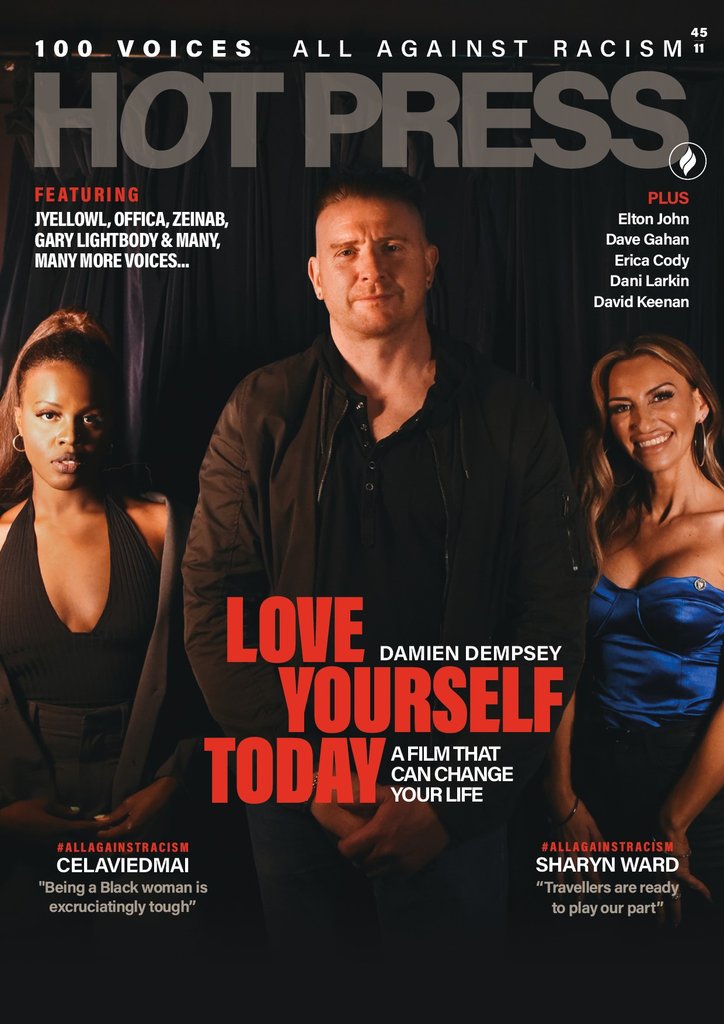- Film And TV
- 21 Dec 21

As part of our 12 Interviews of Xmas series, we're looking back at some of our unmissable interviews of 2021. Love Yourself Today has been hailed as one of the most beautiful and brilliant Irish films in years. Ahead of its release in November, Damien Dempsey and director Ross Killeen discussed the extraordinary documentary, which captures the remarkable power of Damien’s live performances, whilst also revealing how fans find sanctuary, catharsis and hope in the Donaghmede man’s music.
Damien Dempsey has carved out a special place in modern Irish music. Nowhere is this more evident than at his annual Christmas homecoming gigs in Vicar Street, Dublin, which have become a ritual gathering for so many of his fans, who come together to immerse themselves in Damien’s wonderfully authentic, hope-filled music. These gigs are unique and uniquely inspiring: an emotional release for people who – drawn into a kind of magic circle by the music – feel seen, understood, connected, and emotionally fulfilled.
Now that near religious experience is being shared with the world. Love Yourself Today is a new feature documentary that sets out to capture the magic of Dempsey’s Christmas concerts. But it is more than that too. Shot in beautiful black and white by director Ross Killeen, the film also explores the personal stories of three fans who have all been deeply affected by tragedy and trauma – and who have battled through, and are shown in the film, bruised but still standing.
“It’s about dealing with trauma, coping with it,” Damien Dempsey says of the film, sitting in the bar of the Hardwick Hotel in Smithfield. “It’s about healing and modern spirituality and community and music, and the power of those things to heal. And it’s about wisdom, from people who have been to hell and back.”
It is that indeed – and a whole lot more besides.
Advertisement
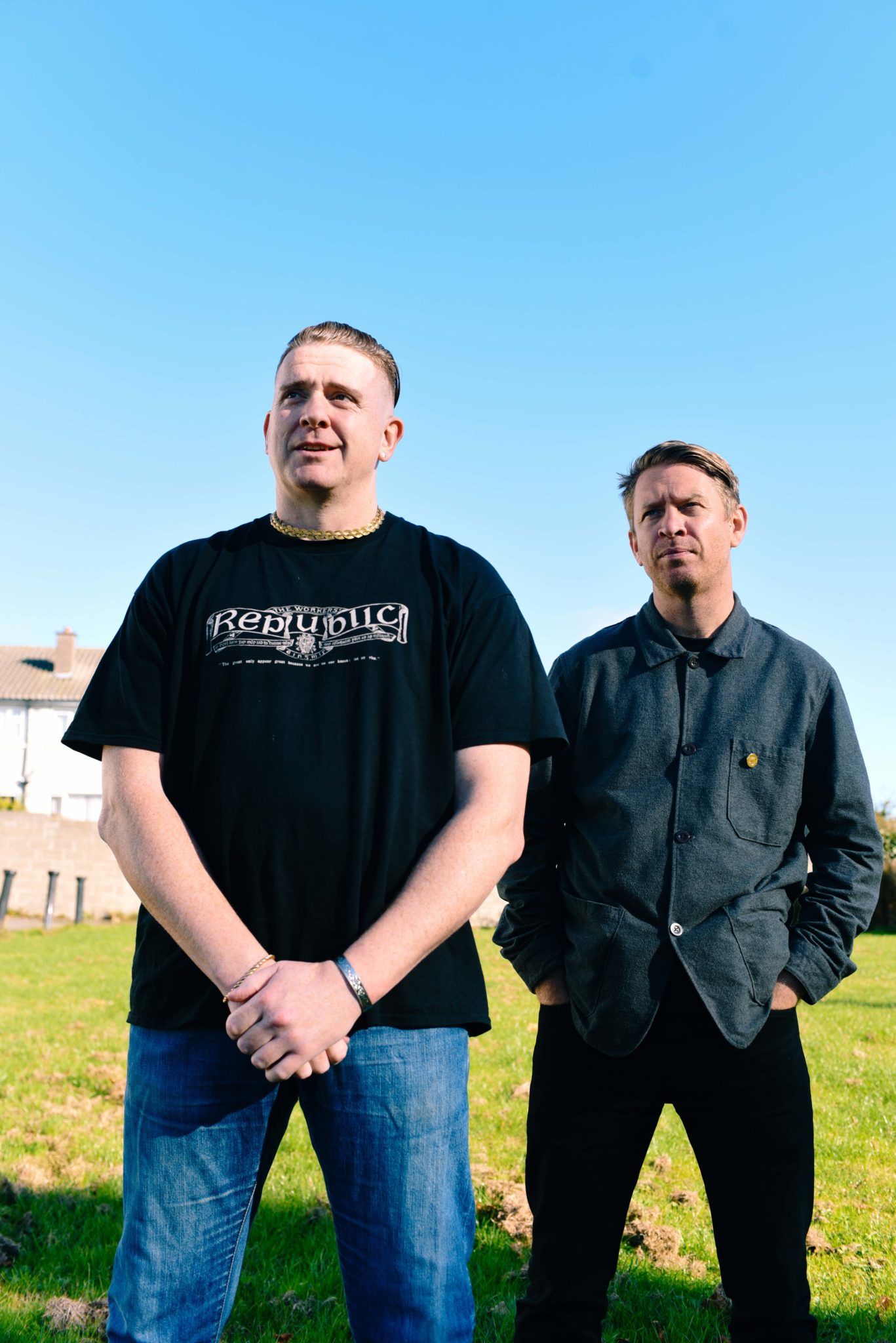 Damien Dempsey and Ross Killeen. October 2021. Copyright Miguel Ruiz.
Damien Dempsey and Ross Killeen. October 2021. Copyright Miguel Ruiz.FLOODS OF TEARS
2017. Film director Ross Killeen had been working on shorts like 99 Problems and Becoming Men that touch on issues of gender, class and community. He was a rising cinematic talent. But he was also experiencing difficult changes in his own personal life. As Christmas approached, he was searching for some joy and escapism. On the advice of a mate, he went to a gig in Vicar Street. Little did he know, as he stuffed himself into his coat on the way out the door that night, that he was about to be cracked right open emotionally and that his creative journey would, as a result, take a fresh new path.
“I’d always been aware of Damo,” says Killeen, “but I hadn’t been to a show. And I was actually going through tough times myself: my mum was very sick. A friend of mine was like, ‘You should go see the Damo show at Christmas’. My wife was pregnant at the time, and we went along and sat in the seats at Vicar Street. People would tell me, ‘You’ll get it when you see it. But you need to experience it’.”
“You’ll either get it or you’ll never come to another show!” interjects Dempsey, laughing.
“I spent the whole gig watching the crowd,” Killeen says, “watching Damo, watching the crowd, watching Damo. I’m a massive music fan. I’ve been to many gigs down the years. But I’d never been to anything like I saw that night. Just watching these men, these tough, tough men, really opening up emotionally and supporting each other. It was really eye-opening. The gig starts off and everyone’s spirit lifts, everyone’s singing along, and then it just went into this bit in the middle where everyone opens up emotionally, and everyone’s in bits.
“One of the songs is about suicide and missing people, and my mother was very sick at the time with dementia. So the song just resonated with me, and suddenly I found myself in floods of tears. Then Damo brings everyone up at the end of the gig, and everyone feels amazing. Something just happens in that room. I walked out feeling like I had been spiritually cleansed. I really believed in everything Damo was doing. He was thriving on the energy of the crowd. It was this shared experience, as the energy in the room was created and held and shared.”
Advertisement
It took a little while for the jigsaw to take shape. A director friend of Killeen suggested the idea of doing a documentary about Dempsey, and Ross wrote a treatment: it was half a concert film that would capture the energy of Dempsey’s Christmas gigs in Vicar Street, and half an exploration of the people who go – of their lives, and what it is that makes the music resonate with them so deeply.
In early 2019, Killeen and Dempsey finally met through a mutual friend, the artist and activist Maser. Dempsey sat stoically through Killeen’s pitch about the film. Killeen had no idea if the singer, as inscrutable as ever, liked the idea or hated it, but at the end of the meeting, Dempsey nodded. He had one single stipulation. “Let’s make something that helps people,” he said.
Dempsey was impressed with the sensitivity of Killeen’s short films.
“He showed me what he had done with the kids off Sheriff Street, who jump off the bridges [Becoming Men], and I was wowed by that. And he had made another short, 99 Problems, about an ice cream man out our way called Pinky, who has fights with other ice-cream men over territory. I was really impressed. They were epic looking, and I knew he was interested in people and that the film would look good, anyway!”
Damien Dempsey’s songs have always been raw and emotional, touching on difficult social issues like suicide, mental health, homophobia, loss and isolation, while always feeling intensely personal. He’s always been a warm and honest performer, using interviews to speak openly about his own struggles with mental health and substance abuse, and encouraging people to seek help and support. But the music, says Killeen, is the transformative energy.
“We’ve had people who have seen the film who have said ‘I didn’t really get Damo until I saw it and really just understood what he’s doing’. Originally, the film was going to be about modern masculinity and how men, Irish men, aren’t in touch with our feelings, and how Damo’s gigs encourage people to tap into their emotions and release them in this communal space. A lot of people struggle with that today, talking about their emotions and mental health – women and men.”
“There are women at the gigs, too,” Dempsey interjects. “You just can’t see them often because they’re hidden behind these huge, crying blokes. They’re magic mushrooms in high grass,” he quips.
Advertisement
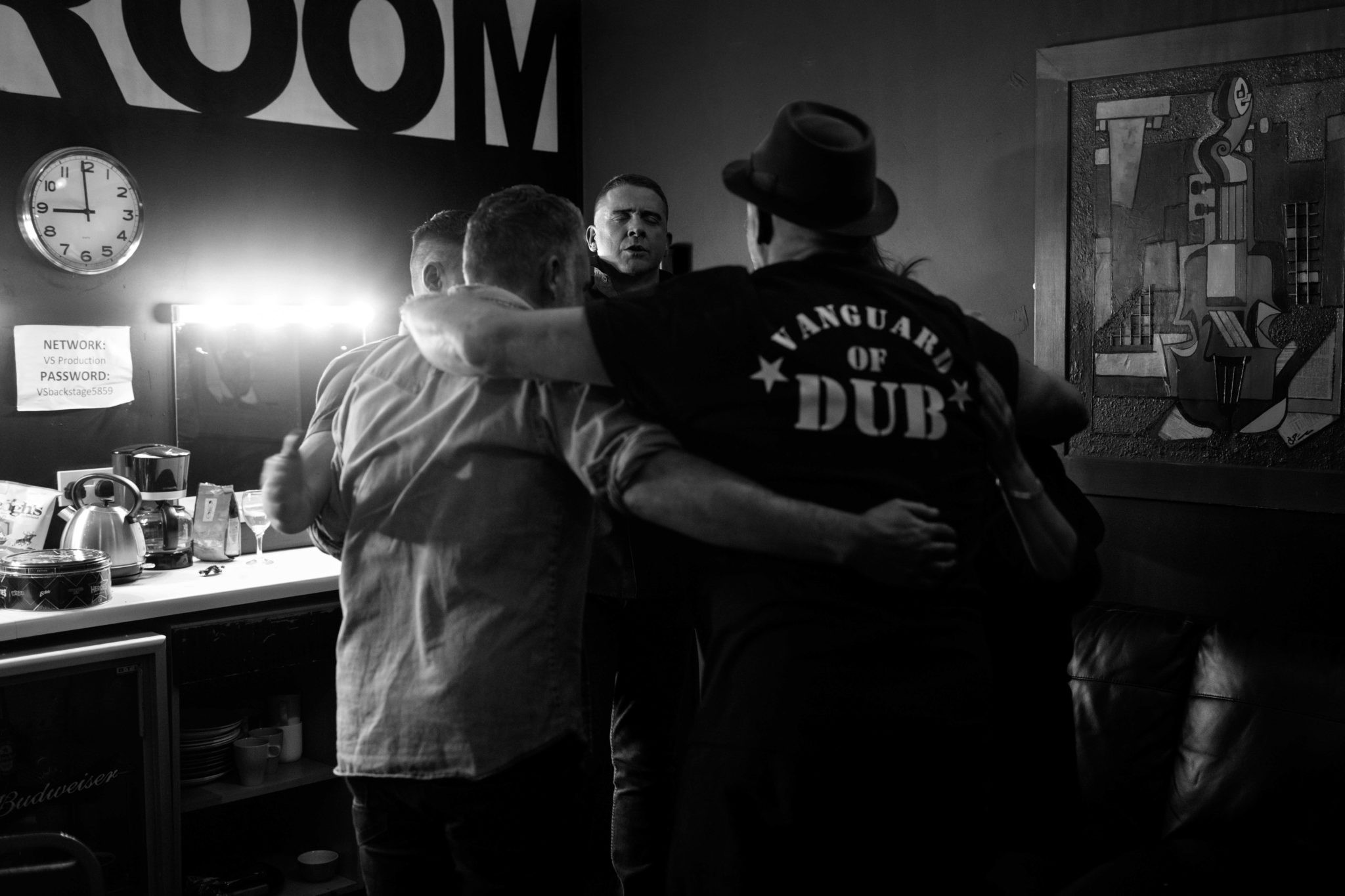 Backstage – Ross Mcdonnell
Backstage – Ross McdonnellTHE STAR OF THE SHOW
In person, Damien Dempsey is warm and personable and full of jokes, his Donaghmede accent still strong despite years of touring and living abroad. It’s this authenticity that makes him so relatable to so many. So when he says that he last cried merely days ago, or sings about feeling alone, people listen, and are encouraged to share their own struggles.
“You know if you say it, you’re making it okay for someone else to say it or not be ashamed of it,” says Dempsey. “And I think it does help men, because people have seen me in gangster movies and that, so there’s something in being a man saying that you have cried recently – it makes others go, ‘Maybe it’s alright for me to cry, too’. It’s important, to be able to show that you’re not always tough, that you’re also soft, or feel broken or smashed up or vulnerable at times. Seeing someone else start that conversation helps others follow.”
We have started to talk about mental health in Ireland, including the alarmingly high suicide rates among men, and the societal factors such as the housing crisis that add to people’s mental health struggles. But we need to do more.
“The fellas I know, there are a lot of youth workers like Ray Corcoran and Dean Scurry in Ballymun,” he says, “who are trying to push that onto the younger people, the idea of just talking. They try to show that, if you’re low, to reach out and tell people how you feel. And music really helps that expression.”
Advertisement
Dempsey had a difficult childhood. His mother left his family when he was young. For her, it was the right thing to do, he says, but it brought a lot of shame and stigma upon the family, as divorce wasn’t yet legal in Ireland. Dempsey was bullied. He spent his teenage years getting into lots of fights. To escape, he drank from an early age, before discovering the power of music. It wasn’t until his late twenties and early thirties that he started to speak more openly about his emotions.
“I suppose I started feeling more comfortable being myself and talking about this when I stopped caring so much about what people thought of me,” Dempsey says. “I have a song called ‘If They Don’t Care About You, Who Cares What They Say About You?’ and I started thinking like that. Why am I so worried about what people think about me? I’m going to be myself, and if they don’t like it, fuck them!”
Many people who become addicted to drugs or alcohol, or who get lost in other ways, are simply responding to traumas and difficulties in their own lives. Often, the rhetoric around alcohol and drug abuse refers to ‘gateway drugs’ – but trauma is the most common gateway to substance abuse.
This insight is woven through the four personal stories told in Love Yourself Today. In addition to learning much more about Dempsey himself, Killeen introduces us to three other characters, who have all battled with personal trauma. We meet Nadia, a woman who witnessed domestic violence in her home growing up, only to end up with an abusive partner herself, and suffered from an addiction as she struggled cope. There’s Packy, a boxing coach who witnessed too many suicides in his community and never received any education about how to care for your mental health. And there’s Jonathan, a kind man who now dresses up in a Santa costume at Christmas to delight young children, even though as a child he was viciously beaten by a teacher, leaving deep scars.
“Nadia, Jonathan and Packy are absolute heroes”, says Dempsey. “Their stories are so important. They show the danger of Ireland’s culture of brushing things under the carpet, of making people suffer silently – but also the resilience, and how we cope.”
Killeen nods.
Advertisement
“We were originally going to just explore masculinity, but to me, Nadia is the star of the show – sorry Damo!” he laughs. “I met her last week and for her, everything was always brushed under the table – ‘Don’t say this, don’t say that’ – but she’s finally getting to tell her story. In the film, she says she’s an addict and in recovery, but she’s never ashamed of it, she’d never try and hide it. And so hopefully people will understand. No-one wakes up and thinks, ‘I’m going to get addicted to drugs today’. It happens for a reason. We need to stop demonising addiction and look at the cause.”
“There’s usually a big underlying problem,” agrees Dempsey, “a problem or incident or circumstance in their life that has been very traumatic. Addiction is a problem, but rarely the first problem. It’s the response.”
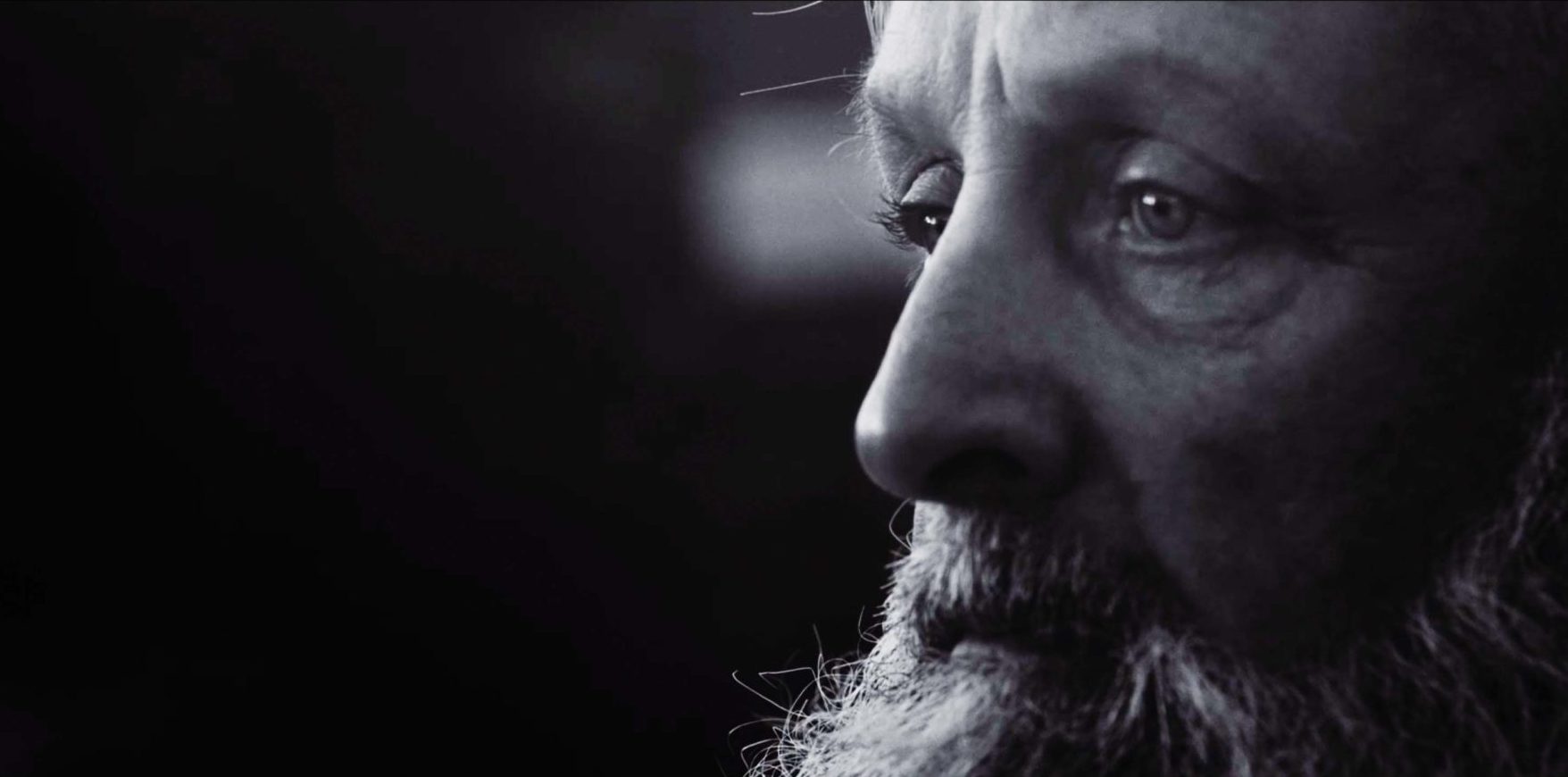 Jonathan
JonathanMORE COMMUNITY, MORE DEMOCRACY
Dempsey and Killeen knew that the stories of Jonathan, Nadia and Packy had to be dealt with sensitively. The film has been a cathartic experience for one and all.
“Jonathan has told me that the film has been very healing for him,” says Killeen. “It’s closure, to just finally make peace with that. His son came along to the premiere in Galway and didn’t know the full story, so Jonathan was very nervous. But he feels like his truth is out there now. Jonathan really imparts a lot of wisdom about how this incident had a huge knock-on effect on his life, and how we really need to look at the things that affect us deeply and address them.”
Advertisement
“It can be just one event in your life that can change your whole trajectory,” says Dempsey, “or it can be your environment.”
As Nadia and Jonathan’s stories illustrate, intergenerational violence is a huge issue. Witnessing and/or experiencing violence or abuse when we’re growing up too often leads to more of the same.
“It’s about stopping that cycle of violence, which has been a huge part of Irish history,” Damien says. “It’s about breaking the silence. I had a granddad and uncle in an industrial school, and a cousin in a Magdalene Laundry, and all those were defined by never talking about it, sweeping that abuse under the carpet. When I learned that, I decided that enough was enough; we needed to start talking about what has been done to us, to our land, what we have been through. We need to talk about it, so I’m going to.”
Dempsey is concerned about the proliferation of drugs in Irish society. He believes that cocaine addiction is tearing communities apart. In Love Yourself Today, he’s reflective about it all, remarking on the lack of jobs, education and fulfilment that leaves people without purpose, and makes them turn to scraps.
“Young people in so many estates around Ireland, in Dublin and country towns, are being wrecked by drugs,” he says. “Cocaine is ravaging our country, and young people, teens, are getting addicted when their brains are still developing. I saw when cocaine came into Donaghmede what it did. Before it came in, there were fights and scraps, but when cocaine came in there were murders.
“People I went to school with, all started dealing – and killing each other. It became very violent, very quickly. It went from scraps to people getting ears bit off, people getting stabbed, people getting shot dead. A few of my friends got into it: some of them just aren’t around anymore. Now the country is awash with it. People can’t just have a drink anymore, they need cocaine. It’s a plague.”
Dempsey believes that Ireland’s rapid transformation, though positive in so many ways, has also been destabilising, leaving people without a sense of community.
Advertisement
“Dublin has changed so much since the ‘80s, for the better in so many ways,” Dempsey remarks. “A lot of the skeletons are coming out of the closet. But there’s a big spiritual vacuum that comes with that. Before, people did have a bit of faith, they had a sense of trust and community. But when all the scandals came out in the Church, it pushed Irish people away from spirituality. And Irish people have always been very spiritual, so that’s dangerous, that sudden spiritual vacuum. It robbed us of faith and trust, but also a connection to our sense of identity.
“I suppose I’m trying to fill it with music and spirituality, telling people to go out into nature, the woods, the forest, the riverbed, the sea. Our old religions, before Catholicism, were very nature-based. Catholicism really divorced us from nature, divorced us from that connectivity. We need to get back to that. And music is a way of connecting; the vibrational frequency of people singing together is connective, and singing itself is mediative. You have to remember the next line, focus on your voice, the next note, the next key. You’re thinking of your breath, your voice, your body as a living, breathing, animal. It’s very primal, singing. So a concert is a place where we can come together, connect, meditate, experience ourselves as living, connected beings.”
I ask Dempsey about his experience with religion now, and he tells me he slips into a church on occasion.
“I go in now and again, when it’s empty, and say a prayer to all the great people in the world, the people who have come through these churches,” he says. “There’s more good than bad. But we gave the Church too much power. You should never give a group of people that much power, because it will corrupt them. It needs to change. They should let priests marry, let women be priests and bring Irish traditional music back into the churches.
“Women used to be strong throughout Irish history, great queens and leaders, and the male domination of the Church ruined that, too. So more community, more democracy, more equality. The way it used to be.”
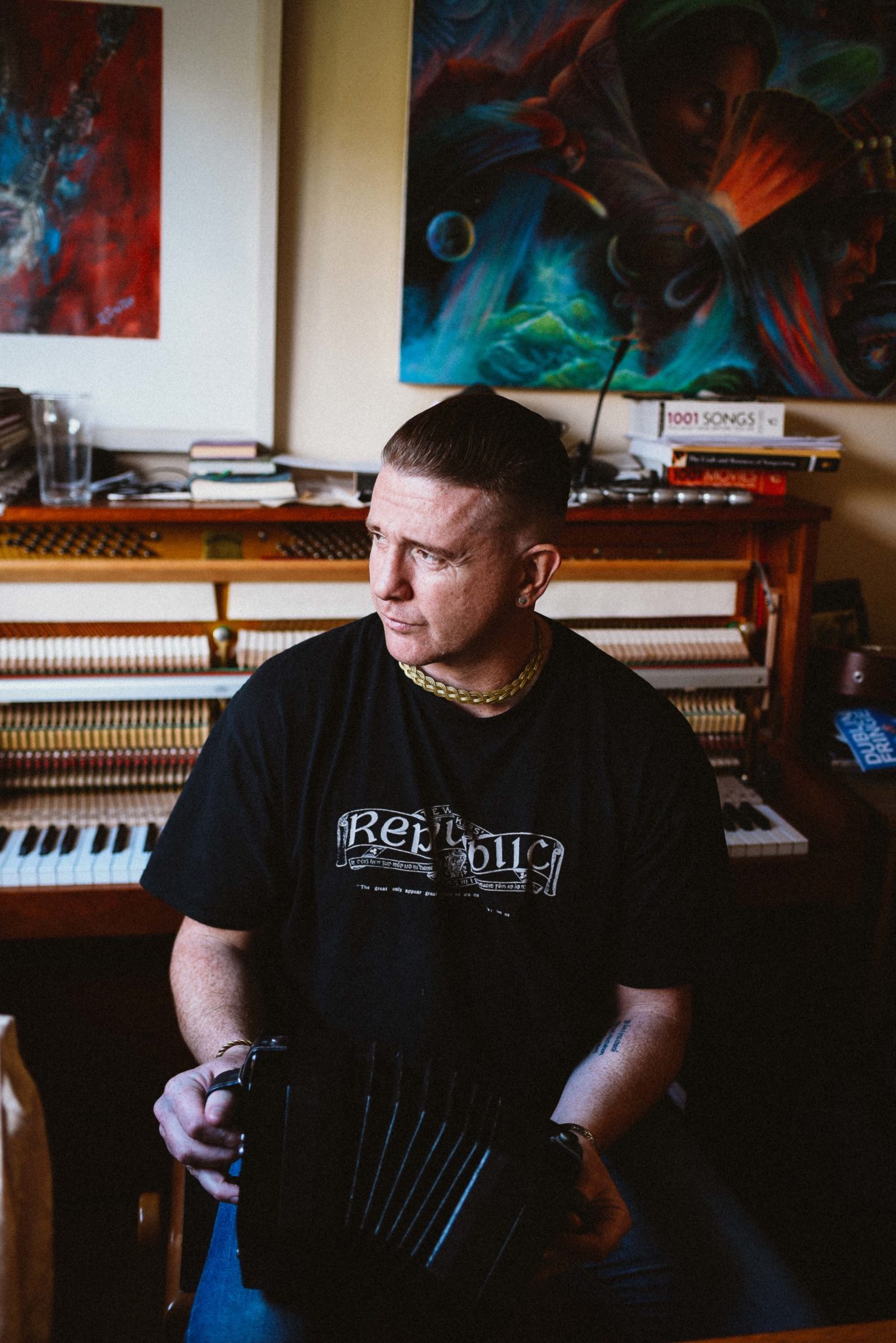 Damien Dempsey. October 2021. Copyright Miguel Ruiz.
Damien Dempsey. October 2021. Copyright Miguel Ruiz.Advertisement
DEALING WITH TRAUMA
Love Yourself Today is elegantly shot in black and white. The quiet, contemplative nature of the individual personal stories is transformed during footage of the performances. Killeen captures the beautiful, emotional surges and swells of energy as Dempsey sings, and his audiences join in singing, connected in body, in emotion, in expression. The film originally had a different working title, ‘The Church of Damo’, which is how many of Dempsey’s fans lovingly refer to his gigs. But Killeen and Dempsey quickly decided that Love Yourself Today was more fit for purpose.
“The fans call the gigs that because they’re so spiritual,” says Killeen, “but to me, so many Irish films deal with the Church and abuse. We don’t talk about the Church at all in the film, because it’s modern spirituality that happens in that room during a gig. It’s people from all walks of life, all ages, all parts of the country, all connecting. Everyone is going through something, and Damo gives them a safe space to express that and let it out.
“Damo once said to me that nature, gratitude and music are the cornerstones of spirituality and dealing with trauma, and we tried to address all these things. There’s a subtle motif in the film that Jonathan is water, with his swimming, Packy is fire, and Nadia is earth in her garden. And Damo and his music are air. The four natural elements that combine to create the human spirit: that’s layered into the visuals of the film. It felt important to lean into nature and music.”
Jonathan goes sea swimming, which Killeen and Dempsey both love doing. Trauma scholars have noted that physical resilience exercises – like plunging yourself into freezing water for short durations – can help build up emotional resilience. Dempsey also does yoga, and tries to walk in nature, activities which also help people with anxiety, depression and post-traumatic stress disorder. As does singing.
“Singing together,” Damien says, “being in proximity to other bodies, focusing on lyrics like a mantra, all release chemicals in your body that help make you feel good, and connect.”
Damo is wary of social media.
Advertisement
“I feel sorry for the kids now,” he says. “It’s just a constant bombardment that we’re not meant to deal with. You used to wait at the bus stop in the cold for 40 minutes, and just be able to work through your thoughts, digesting your anxieties. Kids now are exposed to so much, they’re told what to think, to constantly consume, it’s overload. It’s designed to be addictive. I know a few people who it’s really caused mental illness for.”
Of course, Covid has highlighted our human need to be around others, to be physically present with each other.
“I got into nature as much as I could,” Damo explains, “and tried to be philosophical about it. I just said, some people are getting a terminal diagnosis right now and would love to be dealing with Covid, and just being told to be careful. And I was thinking of people in the olden days, living in tenement houses or in cabins down the country, how we lived through famine, through colonisation, and I thought of those people looking at us, laughing, saying ‘Oh, do you have to stay home from work and wear a mask? This is easy’. Of course it’s been difficult, but I try to put it into perspective.”
Dempsey believes that Covid has been culturally important, showing whether countries value their citizens. He remarks that Ireland did a lot to try and support people, though there’s more to be done. “
“That great minister, Catherine Martin, trying to get the pilot scheme for the artist income is brilliant,” he says. “So many artists I know have been squeezed out. All artists deserve support and shelter to do their work – everyone does. Everyone in Ireland deserves a home and basic support.”
The housing crisis is something Dempsey feels very passionate about.
“I just look at my own parents,” he says. “Before the EU, the country was on its arse and broke, but they still found money to build public housing, which working people needed. And they were affordable enough that people could eventually pay them off. And now, no-one can afford homes. Frontline workers can’t afford homes. It’s crazy, and needs to change.
Advertisement
“And maybe this is what it will take to have Fianna Fáil and Fine Gael voted out for the first time, and have a female running the country. I’d love to see a left-wing coalition, to see all the left-wing parties get together and run the country for a while. That’s the only way it’s going to change. And maybe then Fianna Fáil and Fine Gael will have time to regroup, and come back with better policies on housing and that. But they need a shock.”
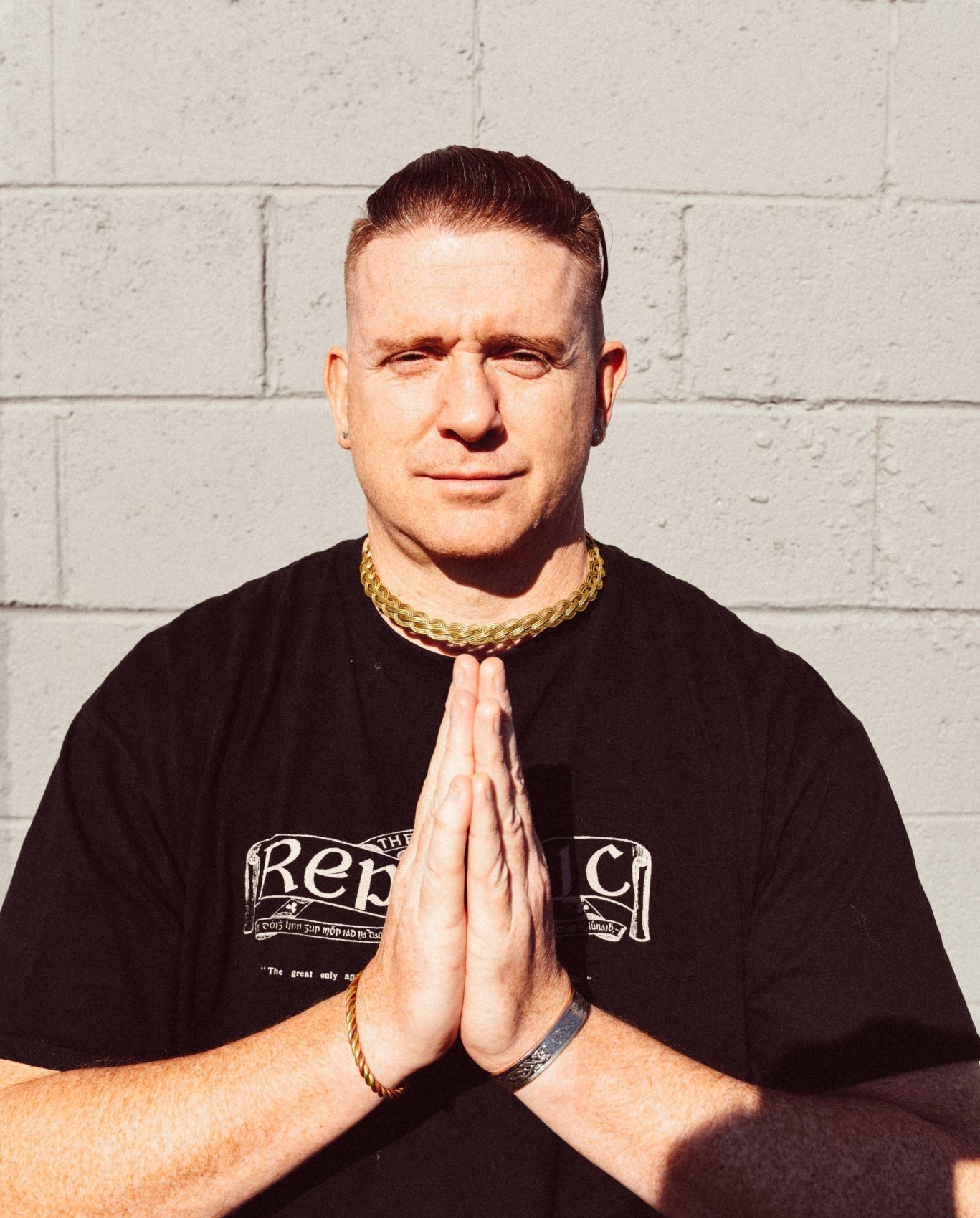 Damien Dempsey. October 2021. Copyright Miguel Ruiz.
Damien Dempsey. October 2021. Copyright Miguel Ruiz.THE VALUE OF HISTORY
Dempsey is passionate too about the importance of learning Irish history. He has toured all over the world and lived in America, the UK and Australia – three countries with their own unique histories of racism and colonisation. Ireland should innately understand the plight of people who are oppressed and stigmatised, he says, but that doesn’t seem to apply. He talks about racism against Travellers.
“People should be taught about who the Travellers are,” he proffers. “Kids should be taught their history. Travellers used to come to towns in the summer, and towns would paint their houses to welcome them. They would fix everything in the town, they would bring new songs. They were storytellers, they had all sorts of skills and would help on the farms, too. Then plastics came in and ruined all of their ancient trades, and then the government tried to force them to assimilate and to be settled people, to stop them from travelling.
“But the sites weren’t developed. They didn’t put in the necessary facilities, so people are living on temporary sites. If someone said to me, you can’t sing anymore, you can’t travel anymore, your livelihood is gone, and then people won’t employ you, because you’re a Traveller – what happens to you? Where do you go? We need to open society to Travellers to let them travel again, give them respect. Travellers used to keep Irish music alive.
Advertisement
“People don’t understand the history of the Travellers in Ireland. That’s why there’s so much ignorance and hatred. Until we know our history and understand it, there will still be bigotry. We need to be taught our real history in school. There’s all this history between Irish people and Black people. When is that ever spoken about?”
Growing up, Dempsey was hugely influenced by Black artists, listening to reggae and worshipping Bob Marley.
“Bob Marley played in Dalymount Park in 1980 when I was six,” recalls Dempsey. “People saw him and his music spread across Dublin. It just clicked with me. So many influences in modern music come from Black culture. It’s meant to be where rap came from, the African-American people and Irish people mixing in Harlem, living in tenements. And you look at people like Muhammad Ali, and Mike Tyson, they both have Irish blood.
“And not through slavery. Muhammad’s great-grandfather Abe Grady was from Ennis, and married his great-grandmother who was Black. So a lot of Irish people and Black people mixed and married in America. There were deep connections. I’m writing a song at the moment with a fella called God Creative, and a lad called Chris Kabs from Congo is producing it. It’s all about the link between Ireland and Jamaica. There’s such a big link there. Jamaica’s equivalent of Malcolm X was a man called Marcus Garvey. He said he was inspired greatly by James Connolly, and he called a lot of his centres around the country ‘Liberty Hall.’ During the War of Independence, he tried to stop Black workers in America unloading British ships.
“And then there’s Howe Peter Brown, from the Browns in Mayo, who were related to Gráinne Mhaol. He helped stop slavery in Jamaica. He built schools for emancipated slaves to ensure they could get an education. So when Irish people are racist, it really makes me sick. It makes me want to…”
He pauses, and it feels like a threat is looming, until he laughs: “It makes me want to sit down and talk to them! But if we don’t learn from the past, we’re fucking idiots, aren’t we?”
Advertisement
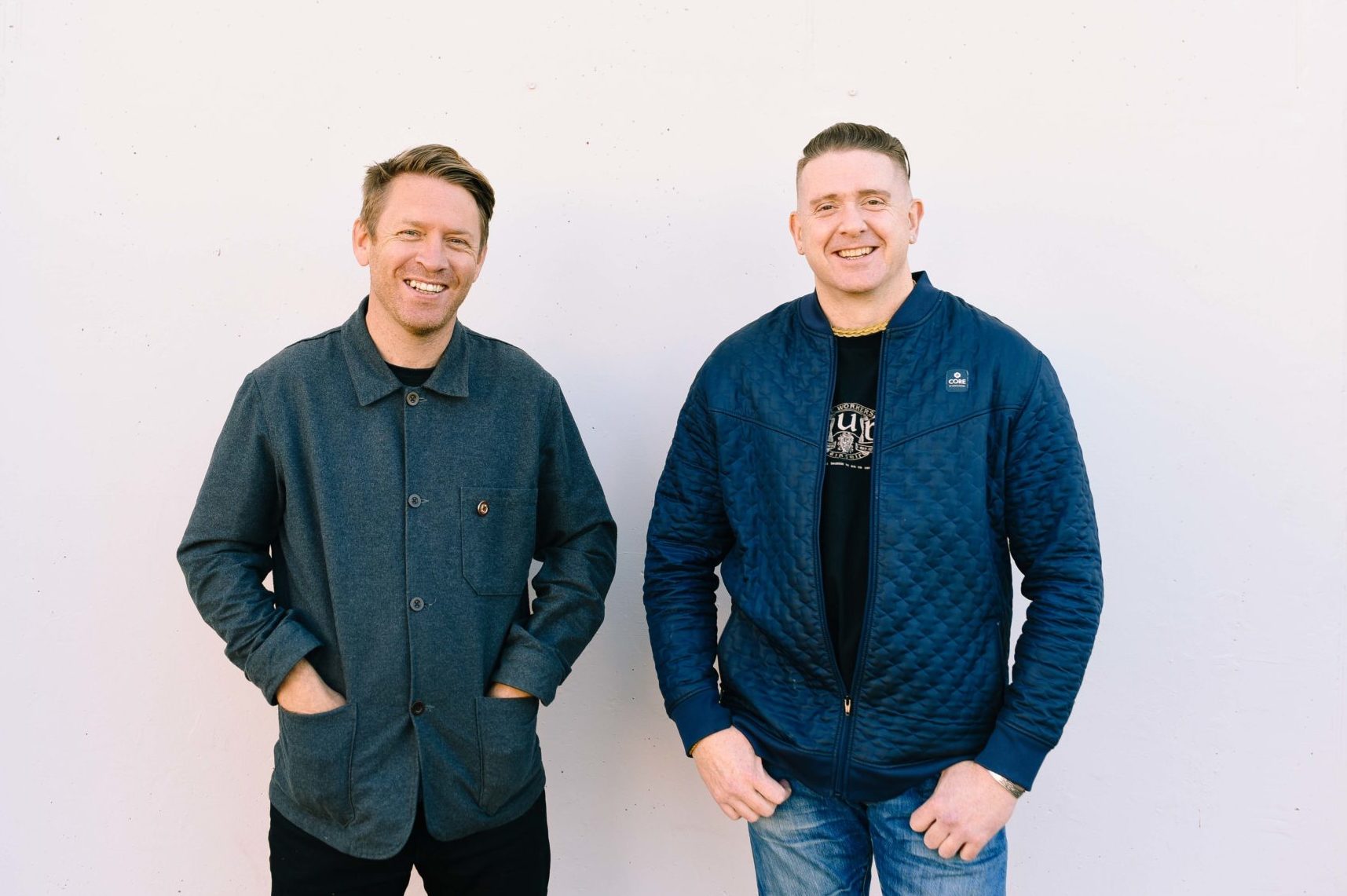 Damien Dempsey and Ross Killeen. October 2021. Copyright Miguel Ruiz.
Damien Dempsey and Ross Killeen. October 2021. Copyright Miguel Ruiz.LIFE LESSONS IMPARTED
Learning from the past and moving forward is perhaps Love Yourself Today’s most important message. Dempsey hopes that the film will get people talking about mental health, and historical trauma. But it’s also about hope, resilience and healing. Like Dempsey’s gigs, the film is emotional, meditative, but also uplifting and positive, with the concert footage providing chest-swelling moments of joy and awe. Dempsey hopes that people go to see it in cinemas – itself a form of collective experience that we’ve all been missing since Covid .
The release of the film completes an emotional full-circle for the director Ross Killeen. His mother died in 2019, and a dedication to her – a line from Damo’s ‘Chris and Stevie’, “What I wouldn’t do for one more laugh with you” – appears onscreen at the end of the film, as crowds of people continue singing “Love yourself today”.
“Shooting the film was healing for me,” Killeen acknowledges. “I put all the grief I was feeling into it. Damo often quotes Christy Moore saying that the music doesn’t come from you, it comes through you, and I feel like this film is very similar. I was a conduit. It came through me, from all these people, and from what we captured and how everyone feels when they’re together in that space.”
“I hope people leave the film feeling hope,” says Damien. “And that they get a few lessons, about lifting themselves. Letting them know that they can sing, and connect with people and nature. There are a lot of life lessons imparted by the people in the film. But for me, it always comes back to hope.”
Advertisement
Read more of the 12 Interviews of Xmas here.


